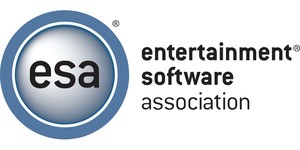UK Commons recommends loot box regulation, ban in kids' games
September 12, 2019 | 11:45
Companies: #department-for-digital-culture-media-and-sport #uk-commons-select-committee

The Commons Select Committee has published its report into 'immersive and addictive technologies,' and it comes with recommendations for the treatment of 'loot box' mechanics in games which are sure to cause heartache in the triple-A games industry.
'Loot box' mechanics, which place desirable in-game items behind a typically real-world-money-fuelled game of chance, have long been controversial - but in 2017 the UK's Gambling Commission declared them outside of its purview unless there was some way of cashing out the in-game items back into real-world money again. Despite this, public sentiment has been turning against loot boxes: Electronic Arts, which had been leaning heavily on the mechanism for ongoing revenue flow in its games, used its absence as a selling point for Battlefield V, as did Turn 10 for Forza. Following the launch of a US Federal Trade Commission investigation the International Game Developers Association (IGDA) called on its members to protect children against the potentially harmful effects of loot boxes, while increasing pressure led the Entertainment Software Association to partner with the three major console manufacturers to mandate that odds of winning are displayed on all loot box purchases - something Apple had done way back in December 2017.
Now, the Commons Select Committee has weighed in with the publication of its report into what it calls 'immersive and addictive technologies.' While not concentrating solely on loot box mechanics, it comes with some strong recommendations - including an outright ban on the sale of loot boxes to children and regulation of loot box mechanics under the Gambling Act.
'Loot boxes are particularly lucrative for games companies but come at a high cost, particularly for problem gamblers, while exposing children to potential harm,' claims Damian Collins, chair of the Department for Digital, Culture, Media and Sport committee behind the report. 'Buying a loot box is playing a game of chance and it is high time the gambling laws caught up. We challenge the Government to explain why loot boxes should be exempt from the Gambling Act.
'Gaming contributes to a global industry that generates billions in revenue. It is unacceptable that some companies with millions of users and children among them should be so ill-equipped to talk to us about the potential harm of their products. Gaming disorder based on excessive and addictive game play has been recognised by the World Health Organisation. It’s time for games companies to use the huge quantities of data they gather about their players, to do more to proactively identify vulnerable gamers. Both games companies and the social media platforms need to establish effective age verification tools. They currently do not exist on any of the major platforms, which rely on self-certification from children and adults.'
In addition to banning loot boxes in games played by children, the recommendations in the report include the Pan-European Game Information (PEGI) content classification system applying its 'Gambling' icon and warning to games containing loot box mechanisms - and not, as currently, simply games which have traditional gambling mechanisms like poker, horse racing, slot machines, and the like.
The report is also scathing about the gaming industry's protection of vulnerable individuals, using the gambling industry as a direct comparison. 'One member of the public reported their adult son had built up debts of more than £50,000 through spending on microtransactions in an online game, RuneScape. Jagex, the company behind it confirmed players "can potentially spend up to £1,000 a week or £5,000 a month" in the game,' the report's summary explains. 'Games companies were generally reluctant to accept a role or responsibility to intervene on player spending, with difficulty in determining what level of spending might be harmful.'
The full report is available now on Parliament.uk.

MSI MPG Velox 100R Chassis Review
October 14 2021 | 15:04








Want to comment? Please log in.